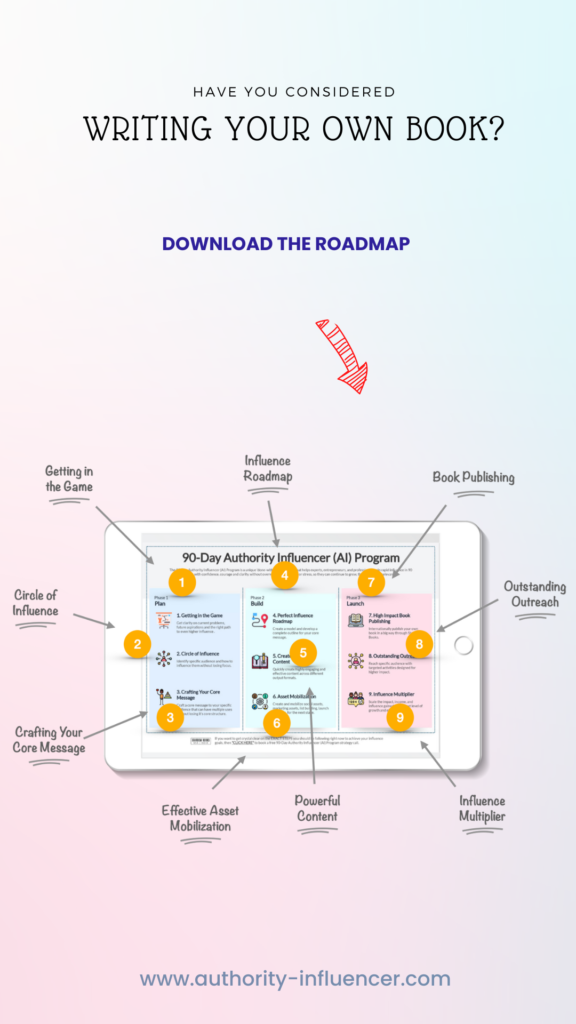Transcript:
Coaching has been known to boost confidence, improve project performance, and build effective communication skills.
Like any other big challenge, writing a book is a significant milestone. So, having a good coach who can guide you through the way might help you set clear goals for your book.
A coach will help you overcome the various hurdles of book writing and save you from losing sight of the end result. The world’s highest achievers have coaches for various areas like fitness, business, meditation, spiritual, finance, high-performance, parenting, communication, voice training, management, fashion, and many others.
That’s because, having a Coach Has Many Benefits:
- Developing a roadmap for success with clear milestones so that you reach those goals.
- Creating a system or a plan for taking up the journey of writing and publishing your book.
- Evaluating your progress vis-a-vis the formulated plan at regular intervals and make any changes, if needed, according to the situation.
- Organizing and developing your book or book proposal.
- Giving you simple and easy-to-use plans, templates, or tools to help you expedite the launching of your book.
- Expanding your author platform.
- Developing a compelling promotion plan for your book.
Having said that, choosing a coach is not an easy task. You will need to consider many things. To help you, here are seven critical factors to consider when you are hiring ANY coach:
• First, Experience and Education:
Are they qualified and educated to help you succeed? Are their education and experience forged in the realities of the marketplace? Or are they just regurgitating the content they learned from someone else?
If I were to look for an expert to learn from, I would always choose the person who has worked in the particular field and who will, therefore, have valuable and viable insights to share.
So, if you are looking to hire the services of a coach to help publish your book, you should look for someone who has excelled in all three areas—– reading (someone who reads a lot of books), writing (who has already written their own books), and publishing (who has published other peoples’ books).
• Second, experience of Facing Challenges Head-On:
Enquire if your prospective coach or mentor has dealt with his or her share of challenges. These need not have been in the same field as yours, but make sure your coach has been where you are now. If your mentor or coach has had it easy, you might have difficulty bonding with them.
Why is this important?
Well, a coach who has gone through life hurdles will help you see the world as it is and prepare you for all sorts of challenges life might throw at you.
• Third – Verifiable Results:
Have they created or produced the same results you want to manifest, or do they ‘just teach this stuff’ from reading books on those topics?
Would it not be better to learn from those people who have travelled on the same path that you now want to traverse?
Is it not better to learn from those who can walk their talk and who have ‘been there done that’?
Your coach should be a role model for you in terms of their success or have a track record of genuinely making a positive difference in the world and helping their clients. Their success will motivate you to reach for the same heights.
Another point to note here is that your coach should be successful in terms of what you think success is. After all, success is relative and unique to every individual, isn’t it?
• Number four – Values Alignment:
Are your values aligned with the coach’s?
For example, you might be a fun-loving, upbeat, and laid-back person and your coach is more like an old-school drillmaster. In this situation, you might struggle to understand and apply the practices and strategies they impart to you.
While this may be an extreme example, you should be aware that even the slightest hint of incompatibility between your values and your coach’s values can cause this process of writing your book to be knocked out.
• Number five – Program Content:
Analyze the methods your coach intends to practice. Will you enjoy implementing the strategies he or she prescribes? Will you find the process that he or she wants you to subscribe to as fun and authentic? Make an informed decision. Having a coach you do not vibe with is a bad idea, and it will only compromise the quality of your book.
• Number six – Satisfied Clients:
Who are their clients? Are they happy with their results? Check for their testimonials and reviews. Make sure to ask around before committing to the person.
• And strategy number seven – Learning Structure:
Analyze and review the methods your coach uses. Are you being benefited? Are the teachings and ways aiding you to reach your goal? Think about it…. and do not rush and make a hasty decision. Some things take time.
So, whenever you want to hire a coach, use this checklist. Use the strategies to evaluate your options and choose the one who checks off all the pointers.
Hope this helps.
Learn more and discuss the idea of working with a publishing coach, with a qualified publishing advisor from Stardom Books, a US-based media and publishing house with offices in N. America and India. Pick a date and time and get on a free 15-minute consultation and see whether writing a book is a good idea or not.
Head over to www.raamanand.com and scroll down to click on the “Book A Call” link or go directly to www.stardomalliance.com/meeting to pick an available date and time that works for you, for a free, 15-minute consultation with a qualified publishing advisor.


Post a comment